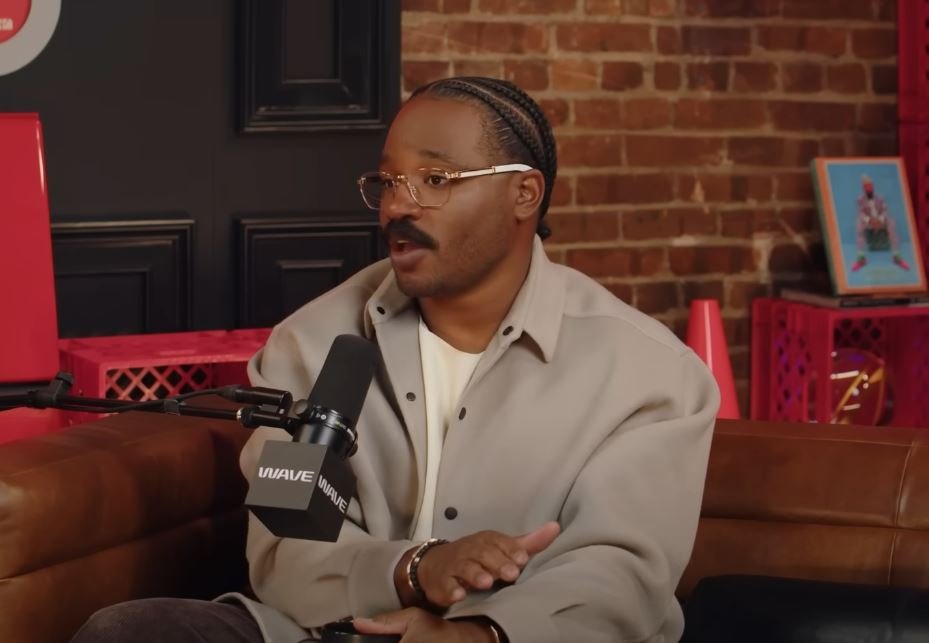
A unique cinematic blueprint, Ryan Coogler’s financial rise was audaciously conceived, well-executed, and remarkably successful in terms of scope and sustainability. Coogler creates long-term value, both creatively and financially, through ownership, loyalty, and creative deal-making, in contrast to many directors who strive for studio salaries or franchise fame.
He had already given up on a possible career in medicine to pursue filmmaking by the time Fruitvale Station debuted in 2013. His decision to switch from science to film was not rash; rather, it was the deliberate choice of someone who understood that narrative had the ability to change how people perceived the world. Soon, revenue models that significantly raised the financial status of underrepresented creators would result from that mentality.
Ryan Coogler – Bio and Financial Overview
| Category | Information |
|---|---|
| Full Name | Ryan Kyle Coogler |
| Birthdate | May 23, 1986 |
| Age | 39 |
| Birthplace | Oakland, California |
| Nationality | American |
| Profession | Director, Screenwriter, Producer |
| Major Works | Fruitvale Station, Creed, Black Panther, Sinners |
| Education | Saint Mary’s College, CSU Sacramento, USC School of Cinematic Arts |
| Net Worth (2025) | $25 million (estimated) |
| Spouse | Zinzi Evans |
| Children | Two |
| Production Company | Proximity Media |
Coogler’s early collaboration with Michael B. Jordan was remarkably adaptable in establishing the collaborative, goal-oriented, and artistically compatible tone for his career. Their joint vision for Creed was remarkably clear, revitalizing a stale franchise and turning it into a $173 million box office success. Jordan’s performance received praise, but Coogler’s directing redefined the emotional depth of sports movies.
Black Panther, a momentous cultural and economic event, followed. With over $1.3 billion in worldwide revenue, it was more than just a Marvel movie; it was a turning point for a generation. Coogler was creating a legacy in addition to directing a superhero. Backend points were reportedly included in his earnings, so the movie contributed significantly to his current $25 million net worth. Coogler used his strategic alliances with Marvel and Disney to build equity in addition to fame.
Together with his wife, Zinzi Evans, he founded Proximity Media, which gave him both financial freedom and creative control. The volatility that is common in director-for-hire careers has been considerably lessened by the company’s involvement in a variety of content, ranging from socially conscious documentaries to scripted series. He’s now creating projects instead of waiting for them, which streamlines production processes and makes room for fresh talent.
His income trajectory took on a new dimension with the release of Sinners, which was produced under his Warner Bros. contract. The movie’s $364 million box office haul signaled a shift away from formulaic blockbusters and toward supernatural narratives. More remarkably, however, Coogler negotiated streaming cuts, merchandising royalties, and long-term rights reversion—strategies that rethink how filmmakers can eventually make money off of their work. His strategy is especially creative and can be used as a template by up-and-coming filmmakers who want to protect their intellectual property.
In terms of money, Coogler’s impact goes well beyond his own earnings. By calling for profit-sharing arrangements that benefit creatives, he is actively changing industry standards. His agreements are notably progressive and extremely effective at producing long-term passive income when contrasted with conventional contracts that give studios complete control over intellectual property.
His success has a deeply emotional architecture that goes beyond the numbers. Coogler demonstrated a humility uncommon among Hollywood elites through his long-lasting friendship with Chadwick Boseman and his sober public remembrance of Boseman after his passing. That emotional clarity—the capacity to maintain a strong human connection while attaining professional brilliance—is what keeps audiences loyal and attracts studio investment.
He has been producing upcoming films like Ironheart and Eyes of Wakanda in recent years. These are ecosystem builders rather than just spin-offs, intended to add variety to the Black Panther universe and provide fresh narrative perspectives. Coogler’s journey is remarkably comparable to that of a tech founder who begins with a single app and progresses to become a platform architect for early-stage creatives.
Coogler’s strategy is incredibly resilient because it combines profit and purpose. In a culture that increasingly values moral leadership, his brand equity is enhanced by his public advocacy efforts, such as his involvement in Blackout for Human Rights and community activism in the Bay Area. Through think tank partnerships, branded collaborations, or public speaking engagements, these factors subtly but significantly contribute to his revenue stream.
Even though $25 million might not seem like much in comparison to filmmakers like Spielberg or Nolan, Coogler’s net worth is significantly increasing. According to analysts, if his current projects are successful and his partnership with Disney continues to grow, his net worth could double in five years. With its exceptional positioning for passive revenue generation across platforms, Coogler is well-positioned to benefit from the streaming model’s growing preference for those with intellectual property stakes since the debut of Disney+.
A unique combination of discipline, foresight, and cultural awareness can be seen in his financial architecture. He prioritizes people over platforms, longevity over fads, and depth over volume. Every professional choice, from hiring an unknown actor to negotiating ownership rights, contributes to a carefully planned ecosystem of reciprocal benefit. His journey is especially useful as a case study for sustainable creative entrepreneurship because of this.
